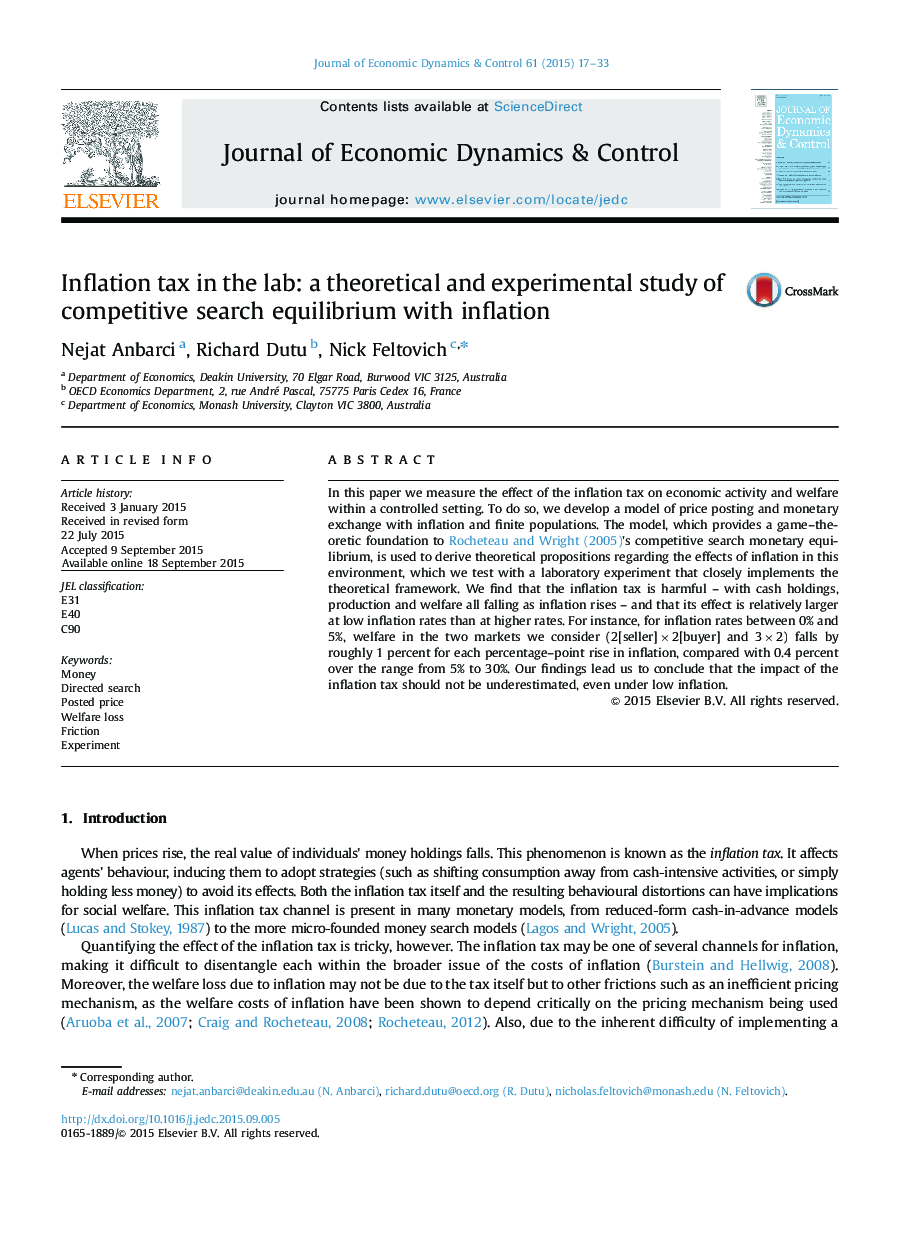| Article ID | Journal | Published Year | Pages | File Type |
|---|---|---|---|---|
| 5098218 | Journal of Economic Dynamics and Control | 2015 | 17 Pages |
Abstract
In this paper we measure the effect of the inflation tax on economic activity and welfare within a controlled setting. To do so, we develop a model of price posting and monetary exchange with inflation and finite populations. The model, which provides a game-theoretic foundation to Rocheteau and Wright (2005)׳s competitive search monetary equilibrium, is used to derive theoretical propositions regarding the effects of inflation in this environment, which we test with a laboratory experiment that closely implements the theoretical framework. We find that the inflation tax is harmful - with cash holdings, production and welfare all falling as inflation rises - and that its effect is relatively larger at low inflation rates than at higher rates. For instance, for inflation rates between 0% and 5%, welfare in the two markets we consider (2[seller]Ã2[buyer] and 3Ã2) falls by roughly 1 percent for each percentage-point rise in inflation, compared with 0.4 percent over the range from 5% to 30%. Our findings lead us to conclude that the impact of the inflation tax should not be underestimated, even under low inflation.
Related Topics
Physical Sciences and Engineering
Mathematics
Control and Optimization
Authors
Nejat Anbarci, Richard Dutu, Nick Feltovich,
